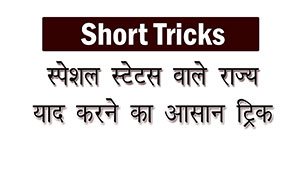Simple Interest Questions Answers
-
22. A lent Rs. 5000 to B for 2 years and Rs 3000 to C for 4 years on simple interest at the same rate of interest and received Rs 2200 in all from both of them as interest. The rate of interest per annum is
- 9%
- 10%
- 11%
- 12%
Answer And Explanation
Answer: Option B
Explanation:
Let R% be the rate of simple interest then,
from question we can conclude that
\begin{aligned}
(\frac{5000*R*2}{100}) + (\frac{3000*R*4}{100}) = 2200 \\
<=> 100R + 120R = 2200 \\
<=> R = 10\%
\end{aligned} -
23. We have total amount Rs. 2379, now divide this amount in three parts so that their sum become equal after 2, 3 and 4 years respectively. If rate of interest is 5% per annum then first part will be ?
- 818
- 828
- 838
- 848
Answer And Explanation
Answer: Option B
Explanation:
Lets assume that three parts are x, y and z.
Simple Interest, R = 5%
From question we can conclude that, x + interest (on x) for 2 years = y + interest (on y) for 3 years = z + interest (on y) for 4 years
\begin{aligned}
\left( x + \frac{x*5*2}{100} \right) = \left( y + \frac{y*5*3}{100} \right) = \left( z + \frac{z*5*4}{100} \right)\\
\left( x + \frac{x}{10} \right) = \left( y + \frac{3y}{20} \right) = \left( z + \frac{z}{5} \right) \\
=> \frac{11x}{10} = \frac{23y}{20} = \frac{6z}{5} \\
\text{lets assume k = }\frac{11x}{10} = \frac{23y}{20} = \frac{6z}{5} \\
\text{then }x = \frac{10k}{11} \\
y = \frac{20k}{23}\\
z = \frac{5k}{6}\\
\text{we know x+y+z = 2379}\\
=> \frac{10k}{11} + \frac{20k}{23} + \frac{5k}{6} = 2379\\
\text{10k*23*6+20k*11*6+5k*11*23=2379*11*23*6}\\
\text{1380k+1320k+1265k=2379*11*23*6}\\
\text{3965k=2379*11*23*6}\\
k = \frac{2379*11*23*6}{3965}\\
\text{by putting value of k we can get x} \\
x = \frac{10k}{11} \\
=>x = \frac{10}{11}*\frac{2379*11*23*6}{3965}\\
=>x = \frac{10*2379*23*6}{3965}\\
= \frac{2*2379*23*6}{793}\\
= 2 * 3 * 23 * 6 = 828
\end{aligned}














